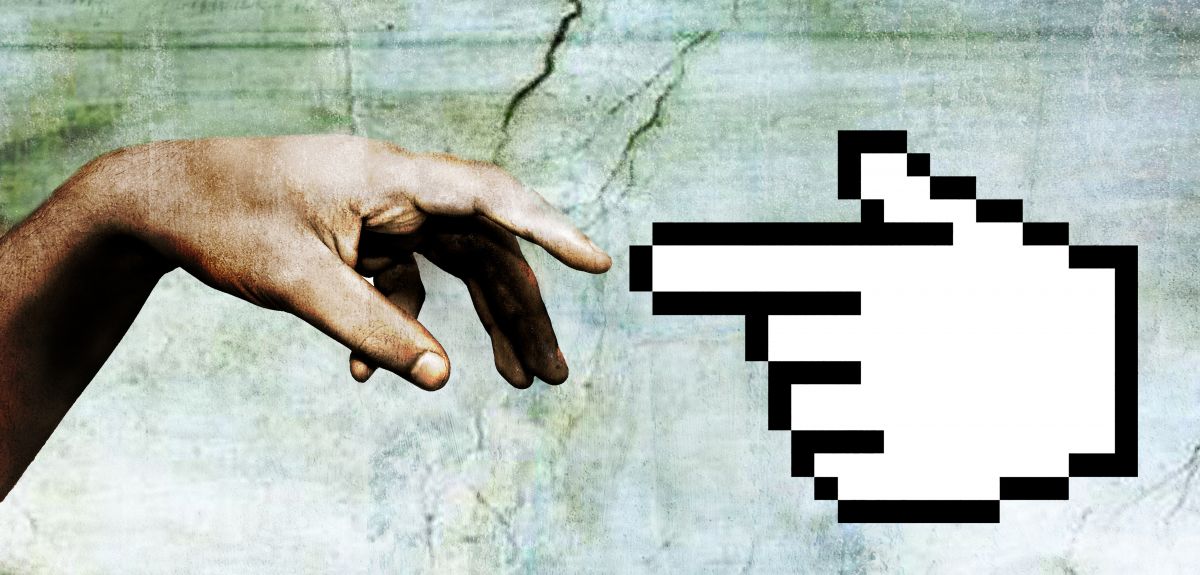
Image courtesy of Shutterstock, copyright Antti Karppinen
TORCH's 2016 headline series to be launched with live-streamed event
'Humanities and the Digital Age' is the topic of this year’s Annual Headline Series in The Oxford Research Centre in the Humanities (TORCH).
Over the next year, academics and practitioners from many different disciplines will discuss the relationship between the humanities, machines and technology.
The first event takes place tomorrow evening with a debate about what it means to be human in the digital age.
It will bring together a panel of experts from across the Humanities and the cultural sector to examine how the digital age has shaped, and will continue to shape, the human experience and the humanities.
The speakers will be Diane Lees CBE (Director-General of Imperial War Museum Group), Professor Emma Smith (Fellow and Tutor in English, University of Oxford), Dr Chris Fletcher (Professorial Fellow at Exeter College, Member of the English Faculty and Keeper of Special Collections at the Bodleian Library), and Tom Chatfield (author and broadcaster). The discussion will be chaired by Dame Lynne Brindley (Master, Pembroke College and Former Chief Executive, British Library).
It will be held at 5.30pm in the Mathematical Institute on the University’s Radcliffe Observatory Quarter. For those who cannot attend in person, the event will be live-streamed.
Dr Chris Fletcher, Keeper of Special Collections at the Bodleian Libraries, will discuss the continued and even increasing interest in the analogue form of the word – whether printed book or archival manuscript – as well as the vibrant cultures of the digital in libraries and the challenges of digital preservation.
Are we in danger of losing the history of the future, and how do we preserve and make it available to present and future generations of scholars?
Dr Emma Smith of the Faculty of English Language and Literature will ask whether in this modern age we will lose our 'ability to forget'.
'My talk considers this as a particular problem of the internet age, and, contrary to claims that we should be preserving and archiving more and more data, makes a case for the creative possibilities of digital obsolescence,' she says.
'I discuss the ways digital recording and archiving of theatre productions threatens something intrinsic to theatre itself, and think about the ways that the right to be forgotten, currently articulated around discharged criminal convictions or youthful indiscretions, might be something to embrace more fully as we think about the art of the digital age.'
Diane Lees, Director-General of the Imperial War Museum in London, will explain how digital tools have helped the Museum’s research and public engagement, focusing on crowd-sourcing projects like Lives of the First World War and The American Air Museum website.
Tom Chatfield, an author and commentator on digital culture, will explore our relationships with machines and technology. 'If we wish to understand our own natures, machines aren’t going to solve our problems or even point us in the right direction,' he says.
'And if we wish to build not only better machines, but better relationships with and through machines, we need to start talking far more richly about the qualities of these relationships; how precisely our thoughts and feelings and biases operate; and what it means to aim beyond efficiency at lives worth living.'